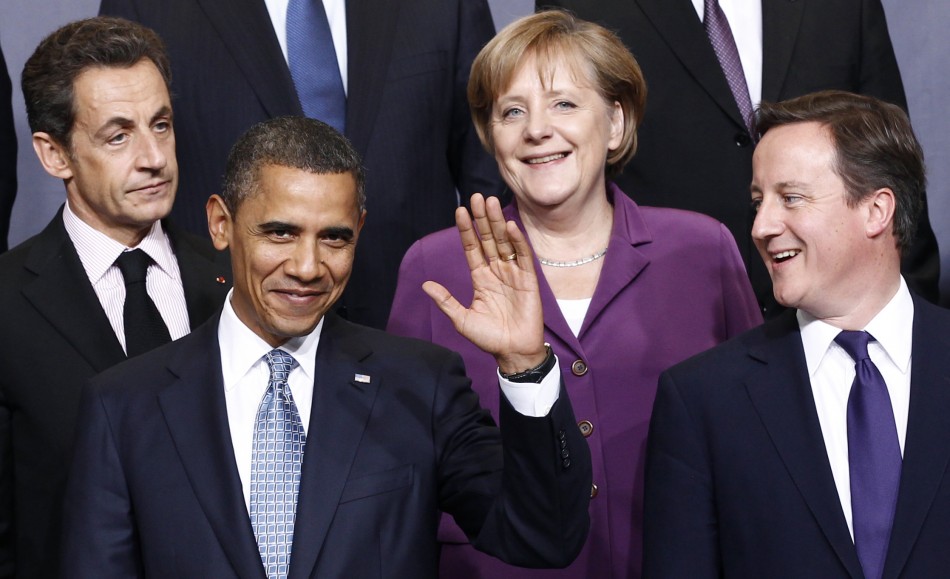 The Foreign Policy Association just released its latest annual National Opinion Ballot Report. Many issues have been tackled in this very interesting report, from the reconstruction of Haiti to the financial crisis to multilateralism to the Horn of Africa. Interestingly, one section was dedicated to Germany and its relevance to US interests. However none dealt with the EU per se.
The Foreign Policy Association just released its latest annual National Opinion Ballot Report. Many issues have been tackled in this very interesting report, from the reconstruction of Haiti to the financial crisis to multilateralism to the Horn of Africa. Interestingly, one section was dedicated to Germany and its relevance to US interests. However none dealt with the EU per se.
Historically, Germany has been a ‘contentious’ topic considering its past. Germany has lost some of its freedom of action and sovereignty despite itself until its reunification following the fall of the Berlin Wall. The reunification of Germany was one of the drivers of further integration of the European experiment in 1992. But since the mid-90s, Germany has progressively regained its independence thanks to its considerable economic engine. Despite Germany’s quick recovery, one of the constant fears about Germany has been around its rise towards superpower status, which has been described as a main concern by the vast International Relations literature and the media. This opinion ballot is a good reminder of that. Since the beginning of the financial crisis, Germany has emerged as the cornerstone of the EU thanks to its considerable growth and level of production.
The results of the first question of the section on Germany in this opinion poll – “The US should promote the leadership of a strong Germany within Europe” – are quite clear as 70% agreed with such statement. This means that a majority of those polled perceive Germany as the most cooperative state within Europe to deal with, but also the most powerful one. Then, the issue of German militarism has also been addressed. The answers to the question on the impacts of German’s defense cuts for the US are quite interesting as 32% see it as a “positive step, lessening the threat of a resurgence of German militarism,” 32% as a dangerous trend endangering the security of Europe, and 37% think it has no real effect. Until the end of World War II, the two words, military and Germany, have been perceived as oil and water. Germany’s past holds a certain weight on the shaping of a new identity of Germany in the security and international sectors. The most recent example is Germany’s abstention from the military endeavor in Libya. The reluctance of Germany to act along with its allies – France, Britain, and the US – for a ‘just cause’ has raised some concerns on both sides of the pond about the motivation and interests of Germany on the international arena.
The last question consists of strengthening ties between the US and Germany by focusing US policy on issues that matter to Germany such as climate change. 62% agreed with such approach, while 18% disagreed. This question is quite interesting, but is purely hypothetical and probably unrealistic considering the current domestic debates in the US on climate change. The American political class, especially the Republicans, as well as a large segment of American citizens do not see climate change as caused by humans, while the narratives in the US have created some sort of perceptions that a green economy would affect the US economy as whole and lead to higher unemployment. The two sides are very far from one another on this issue.
In conclusion, two questions must be asked: why does the US want to promote a stronger Germany in Europe? And has the US given up on the rest of Europe? There are several answers to these questions. First, historically, Germany has cooperated with the US first for security reasons, but today it has mostly done so in order to increase its international credibility. Germany’s past has considerably affected its weight and independence in political and military fora and the way other states perceive Germany. However, this has not spilled-over to the economic and financial sectors. Second, Germany is the economic powerhouse of the European Union. Germany’s economy, even though its economic growth has weakened this year, remains one of the world’s strongest. The current euro crisis is of real concern to the US as an uncontrolled default of Greece and/or additional collapses of European banks could spill-over to the US and ultimately destroy all changes for a quicker recovery. Concerning the rest of Europe, Britain still shares a ‘special relationship’ with the US, but the financial crisis has had considerable consequences on its economy and the conservative government of Mr. Cameron has been very inward looking since its election. The insubordinate France is still perceived as a relevant international actor, but the crisis has been progressively eroding its power domestically, regionally and internationally. As underlined in an excellent article published in the Economist on the Franco-German couple, or the ‘Merkozy duumvirate,’ the tandem serves in fact “to hide the strength of Germany and the weakness of France.” Ultimately, it appears that the phone number of Europe might just be for now Ms. Merkel’s number.